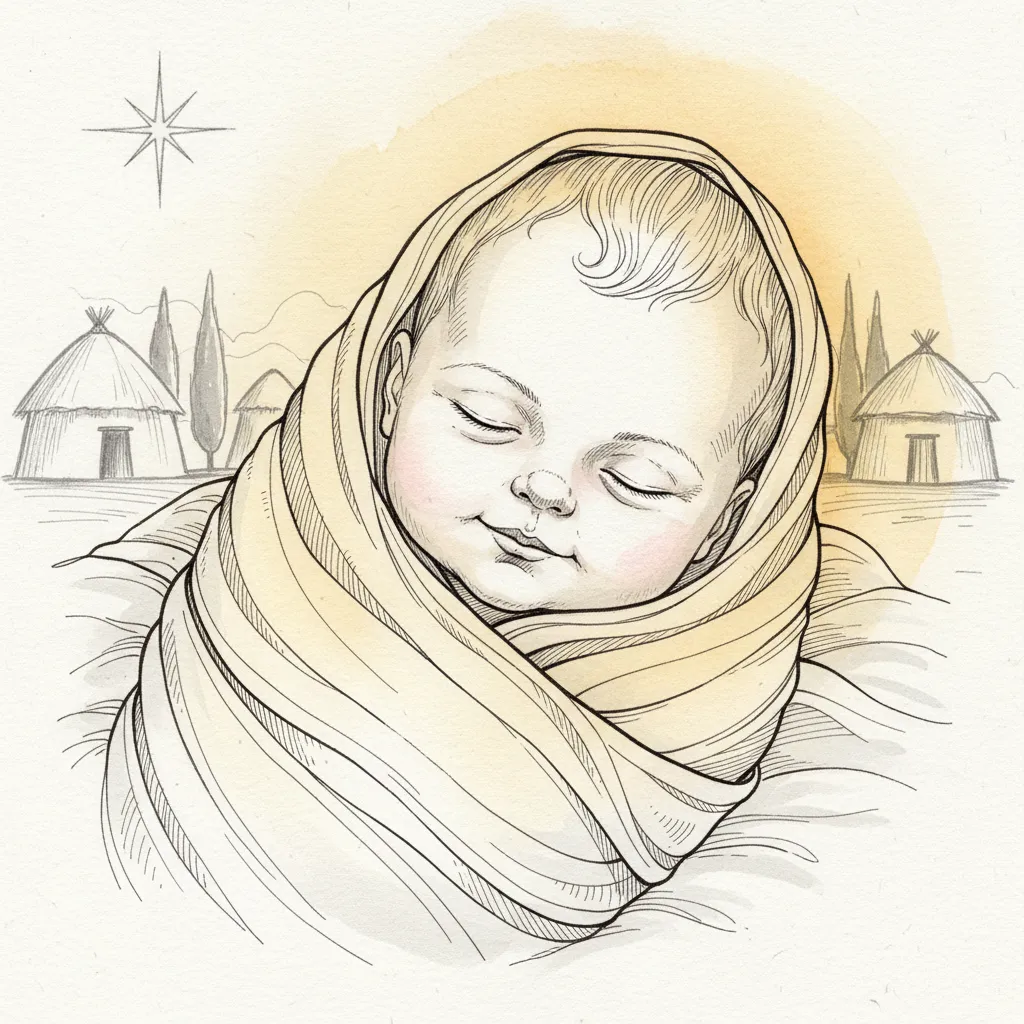The Church keeps time with quiet joys, and today’s joy is small enough to be missed unless we’re looking for it: the birth of a baby girl in Nazareth two millennia ago. The Nativity of the Blessed Virgin Mary is the dawn before the sunrise, the candle lit just before morning breaks. The readings sketch this dawn in three colors: a promise spoken to a little town, a family tree that tells the truth, and a word from God that all things—even the small, the messy, and the painful—work together for good in his hands (Mic 5:1-4a; Mt 1:1-16, 18-23; Rom 8:28-30; Ps 13:6).
Bethlehem and the Grammar of Smallness (Micah 5:1-4a)
Micah names a place so little it barely registers on a map: “You, Bethlehem-Ephrathah, too small to be among the clans of Judah… from you shall come forth for me one who is to be ruler in Israel” (Mic 5:1). God likes to begin where we feel disqualified—too small, too late, too ordinary. That is not sentimentalism; it is the divine strategy of love. Micah ends with a promise as vast as our longing: “his greatness shall reach to the ends of the earth; he shall be peace” (Mic 5:3-4a).
Many carry a quiet discouragement—about a job that feels insignificant, a family situation that hasn’t changed, a hidden battle with anxiety. Micah’s whisper into that fatigue is simple: do not despise the day of small beginnings. Peace does not erupt like a storm; it germinates like seed. Mary’s birth is one such seed. In her, God prepares the field where Peace himself will take root.
A Family Tree That Tells the Truth (Matthew 1:1-16, 18-23)
Matthew opens with a genealogy that refuses to airbrush the past (Mt 1:1-16). It includes heroes and scoundrels, saints and sinners, exiles and returnees. It even names women whose stories carry scandal and pain: Tamar, Rahab, Ruth, and “the wife of Uriah” (Mt 1:3-6). God does not erase complicated histories; he weaves salvation through them.
If your family story is tangled—estrangement, old wounds, secrets—notice how the Messiah’s own family line holds such knots without despair. Then the narrative rests on Joseph, a “righteous man” who chooses mercy over spectacle: instead of exposing Mary, he seeks a quiet way (Mt 1:19). In a culture quick to shame and quick to post, Joseph’s restraint is revolutionary. Only after Joseph chooses mercy does the angel disclose the mystery: “Do not be afraid… for it is through the Holy Spirit that this child has been conceived in her” (Mt 1:20). Mercy often opens the door to understanding.
Mary’s Nativity: The Dawn of Emmanuel
The Church cherishes Mary’s birth because her life is the low door through which the Eternal enters history. In God’s providence, we celebrate this feast exactly nine months after the Solemnity of the Immaculate Conception. Tradition remembers her parents, Saints Joachim and Anne, long acquainted with waiting and disappointment. Into their waiting, Mary is born, a sign that the long patience of Israel is nearing fulfillment.
St. Ignatius of Antioch, writing in the early second century, insisted that Jesus was “truly born” of Mary—really human, really from David’s line, really crucified and risen—not an appearance or idea. The Church kept repeating that insistence because our hope hinges on it: if he took our flesh from Mary, then nothing authentically human is foreign to him. Mary’s birth, then, is a pledge that God meets us not in abstractions but in bodies, families, villages, and time.
And this is the Gospel’s heart today: “They shall name him Emmanuel, which means ‘God is with us’” (Mt 1:23). The name reveals the mission. God-with-us is not a slogan for good days; it is the steady presence that stands in our ordinary and our ache.
All Things Work Together for Good (Romans 8:28-30)
Paul’s words are not a platitude; they are granite underfoot: “We know that all things work for good for those who love God” (Rom 8:28). He does not say all things are good. He says all things—dark nights and bright mornings, detours and losses—can be taken up into God’s design to conform us to Christ (Rom 8:29-30).
St. Teresa of Ávila described the path to God as a journey through the rooms of the heart. The key in her hand was humility—“to walk in truth.” That truth includes our limits, our fears, and our desire. God asks not for polish but permission. Mary’s birth reminds us that God prepares his works long before we understand them; our part is to stay available, to keep saying yes as light grows.
Practicing Emmanuel Today
- Name your Bethlehem. Identify one “small” place in your life that feels irrelevant or powerless. Offer it deliberately to God and ask to be shepherded there (Mic 5:4a).
- Choose Joseph’s mercy. Where there is misunderstanding or perceived offense, resist exposure and escalation. Seek a quiet, righteous path (Mt 1:19-20).
- Sing the Psalm on purpose. “With delight I rejoice in the Lord… he has been good to me” (Ps 13:6). Gratitude is not denial; it is a defiant act of hope.
- Live the closeness of God. Make time today for unhurried prayer, and, if you can, draw near to Emmanuel in the Eucharist—the same Jesus whom St. Ignatius called the “medicine of immortality,” the nearness that heals our distance.
- Let your story be included. Like Matthew’s genealogy, bring the whole of your history to God. He writes salvation through unedited lives (Mt 1:1-16).
Emmanuel is not an idea to admire but a Presence to welcome. On Mary’s birthday, the house of humanity opens a front door, and God walks in. May her small beginning give us courage to trust our own, and may her quiet dawn teach us to expect peace that grows, not roars—peace who has a name, who is with us, and who is enough (Mt 1:23; Mic 5:4a).
